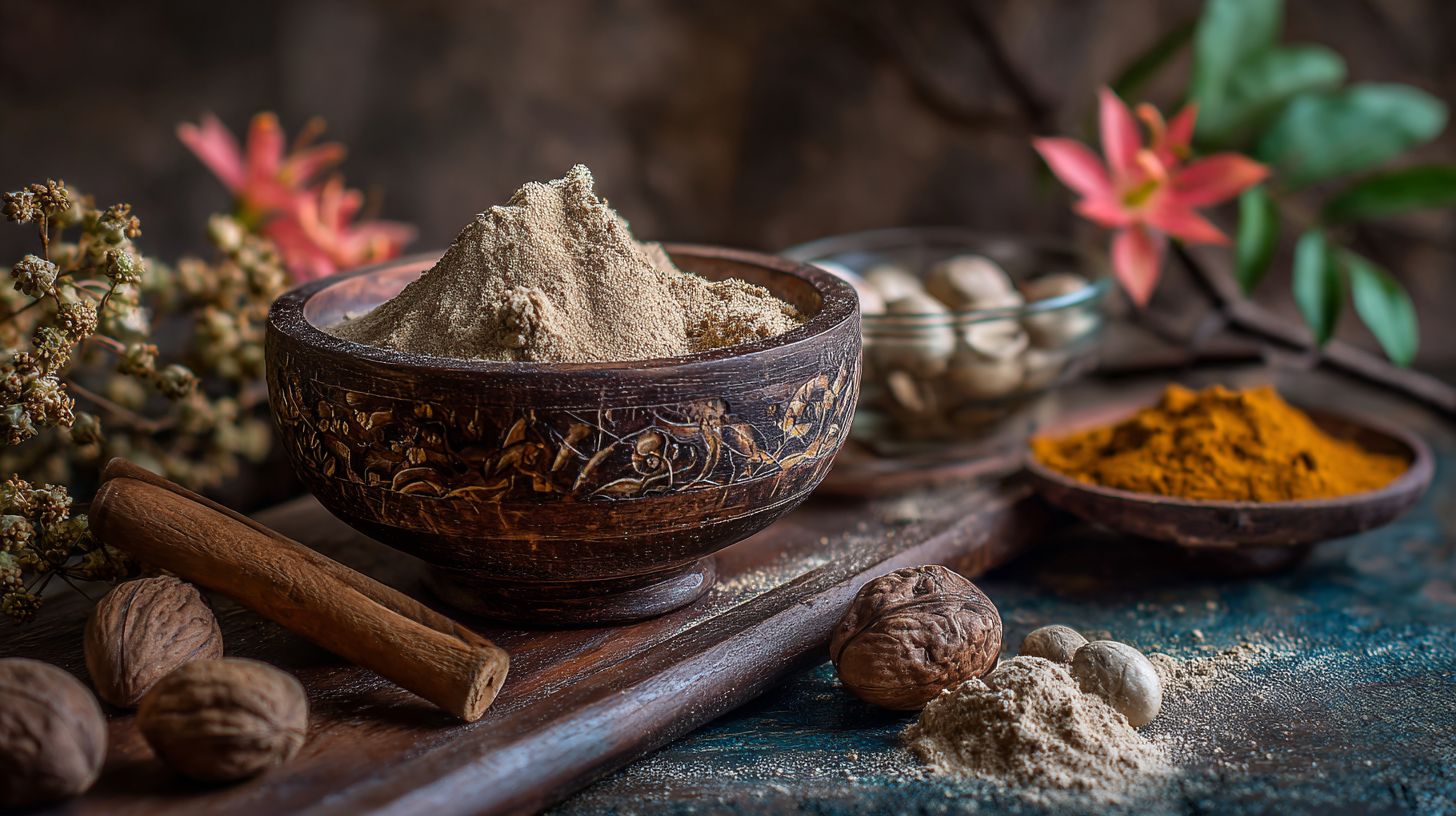
News
Exploring the Unique Benefits and Applications of Best Phytic Acid Across Diverse Industries
Phytic Acid, a naturally occurring substance found in many plants, has emerged as a powerhouse ingredient across various industries, offering unique benefits that cater to diverse applications. As highlighted by recent reports from the Global Market Insights, the phytic acid market is projected to witness significant growth, driven by its increasing utilization in food, pharmaceuticals, and cosmetics sectors. In particular, its antioxidant properties and ability to bind mineral ions make it an invaluable additive for health supplements and functional foods. Furthermore, the rising trend towards natural and plant-based products positions Phytic Acid as a vital component in the formulation of environmentally friendly solutions.

This not only reflects the industry's shift towards sustainability but also underlines the superior exporting capabilities of products infused with Phytic Acid, particularly those manufactured in China, which is recognized as a leading representative in quality and innovation. As we explore the multifaceted advantages and applications of Phytic Acid, it becomes evident that its role in modern industry is both transformative and essential.
Unique Properties of Phytic Acid That Enhance Nutritional Value in Food Products
Phytic acid, renowned for its unique properties, plays a significant role in enhancing the nutritional value of food products. Found primarily in cereals and legumes, it serves as a vital phosphorus reserve during germination, supporting the development of new plant tissues. This characteristic makes phytic acid an essential component in improving the overall nutritional profile of plant-based foods. Furthermore, advancements in food processing techniques, such as fermentation, have been shown to modify the levels of phytic acid and other antinutritional factors, thus enhancing nutrient bioavailability. Recent studies indicate that strains like Lactobacillus apis can effectively degrade phytic acid in fermented wheat bran, increasing its nutraceutical value and flavor properties.
Moreover, the impact of phytic acid goes beyond mere nutrient storage; it can also bind to important minerals and proteins, presenting both challenges and opportunities. In cereals and pulses, phytic acid's antinutritional qualities can limit mineral absorption, aligning with growing consumer awareness about nutritional quality. Research highlights that optimizing processing methods, such as germination and extrusion, can significantly reduce phytic acid levels while improving the functional properties of products. For instance, the blending of germinated cowpea with Ethiopian emmer wheat has shown positive results in enhancing mineral content while minimizing anti-nutritional factors. As industries continue to explore plant-based innovations, understanding and leveraging phytic acid's properties will be crucial for developing healthier, more nutritious food products.
Exploring the Unique Benefits and Applications of Best Phytic Acid Across Diverse Industries
| Industry | Application | Unique Benefits | Nutritional Impact |
|---|---|---|---|
| Food Industry | Preservation and Enhancement of Grains | Improves shelf life and maintains nutrient profile | Increases bioavailability of minerals like zinc and iron |
| Pharmaceuticals | Supplement Formulations | Acts as a natural chelator for minerals | Enhances therapeutic efficacy of certain medications |
| Agriculture | Soil Health Improvement | Increases nutrient retention in soil | Promotes better crop yields and quality |
| Cosmetics | Skin Care Products | Natural antioxidant properties | Protects skin from environmental damage |
| Dietary Supplements | Fortification of Health Products | Enhances nutritional profiles | Supports overall health and wellness |
Five Key Benefits of Phytic Acid in Skin Care and Cosmetic Formulations
Phytic acid, a natural compound derived from plants, has garnered significant attention in the skincare and cosmetic industries due to its unique properties. One of its primary benefits is its role as a potent antioxidant. Phytic acid can help neutralize free radicals, which are responsible for skin aging and damage. By incorporating phytic acid into formulations, brands can enhance product efficacy, promoting a more youthful and vibrant complexion.
Another key benefit of phytic acid is its ability to act as a gentle exfoliant. It effectively aids in the removal of dead skin cells, revealing brighter and smoother skin underneath. This makes it an excellent ingredient for products targeting uneven skin tone or texture issues. Additionally, phytic acid boasts moisturizing properties, helping to hydrates the skin and improve its overall texture. This is particularly beneficial for dry and sensitive skin types, ensuring that these formulations cater to a wider audience while maintaining a gentle approach.
Moreover, phytic acid works synergistically with other active ingredients, such as vitamin C, to enhance their stability and absorption. This characteristic is particularly vital in cosmetic formulations that seek to deliver noticeable results effectively. As consumers become increasingly aware of the importance of ingredient efficacy, phytic acid stands out as a multi-functional asset in modern skincare.
Exploring the Unique Benefits of Phytic Acid in Skin Care
This bar chart illustrates the unique benefits of phytic acid in skincare applications. The data reflects perceived effectiveness across five key benefits including moisturizing, antioxidant activity, brightening effects, exfoliating capabilities, and anti-aging properties, showcasing phytic acid's versatility and effectiveness in cosmetic formulations.
Phytic Acid's Role in Agriculture: Promoting Soil Health and Crop Yield
Phytic acid, often overlooked in agricultural practices, is emerging as a vital component in promoting soil health and enhancing crop yields. As a natural compound found in many plants, especially in seeds and grains, phytic acid plays a crucial role in the nutrient cycle. When integrated into soil management strategies, it can improve phosphorus availability, allowing crops to utilize this essential nutrient more efficiently. This is particularly beneficial in soils deficient in phosphorus, where the organic forms of this nutrient can be locked away and unavailable to plants.
Moreover, the application of phytic acid can help in soil structure improvement, encouraging beneficial microbial activity. Healthy soil ecosystems contribute to better plant growth by promoting nutrient uptake and resilience against diseases. By enhancing the soil's biochemical environment, phytic acid can lead to higher crop yields while simultaneously reducing the need for synthetic fertilizers. This not only supports sustainable agriculture practices but also aligns with the push towards eco-friendly farming solutions. As industries increasingly search for innovative ways to enhance agricultural productivity, phytic acid stands out as a promising candidate that merges ecological sustainability with practical outcomes.
Exploring Phytic Acid as a Natural Preservative in the Food Industry
Phytic acid, a natural compound found in many plants, is gaining recognition as a powerful preservative in the food industry. Known for its antioxidant properties, phytic acid helps extend the shelf life of various food products by inhibiting oxidative deterioration and microbial growth. This makes it an attractive alternative to synthetic preservatives, which often raise health concerns among consumers. By integrating phytic acid into food formulations, manufacturers can enhance product quality while appealing to the growing demand for natural ingredients.

When considering phytic acid for food preservation, it is essential to understand its application levels and compatibility with different food systems. It's recommended to conduct thorough testing to determine the optimal concentration that maintains freshness without altering the taste profile. Additionally, combining phytic acid with other natural preservatives, such as essential oils or plant extracts, can create synergistic effects that further enhance preservation methods.
Tips for implementing phytic acid in food products include starting with small test batches to gauge its effectiveness and consumer acceptance. Regularly review market trends and consumer preferences to adapt formulations and marketing strategies accordingly. This proactive approach will help navigate the competitive landscape while promoting the benefits of natural preservatives in food processing.
Innovative Applications of Phytic Acid in Pharmaceuticals and Dietary Supplements
Phytic acid, a naturally occurring compound found in various seeds and grains, is gaining recognition for its remarkable applications in the pharmaceutical and dietary supplement industries. Its potent antioxidant properties make it an ideal candidate for enhancing the effectiveness of supplements designed to combat oxidative stress. In pharmaceuticals, phytic acid's ability to chelate minerals facilitates better absorption and bioavailability, crucial factors for the efficacy of many drug formulations. This characteristic can lead to innovative drug delivery systems that maximize therapeutic outcomes while minimizing side effects.
Moreover, the dietary supplement sector has embraced phytic acid for its potential benefits in promoting overall health. Rich in minerals such as phosphorus, magnesium, and iron, phytic acid aids in providing essential nutrients while simultaneously acting as a protective agent against various health issues, including cardiovascular diseases and certain types of cancer. This dual functionality not only supports consumers' health goals but also aligns with the growing demand for safe and natural ingredients in dietary products. As research continues to reveal the multifaceted benefits of phytic acid, its role in pharmaceuticals and dietary supplements will likely expand, paving the way for innovative health solutions.






